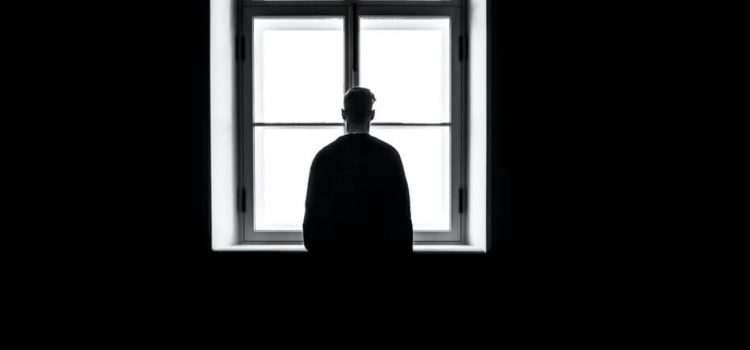

This article is an excerpt from the Shortform book guide to "Lost Connections" by Johann Hari. Shortform has the world's best summaries and analyses of books you should be reading.
Like this article? Sign up for a free trial here .
What is the Lost Connections book about? What are the solutions to depression highlighted in the book?
The Lost Connections book challenges the belief that depression is just a chemical imbalance in the brain, and instead highlights the psychological, social, and biological factors that are the real root causes of depression. The book suggests a few ways to tackle depression including community care, social prescribing, walking through childhood trauma, and curbing materialism.
Read on to learn more about how the Lost Connections book explores alternative causes of depression.
What Is the Premise of the Lost Connections Book?
Many people think depression is just a “chemical imbalance” in the brain: specifically, that it’s caused by low serotonin levels. However, that’s not the whole story: There’s more to depression than just biology.
Today, most experts use the biopsychosocial model to talk about depression, which recognizes three root causes of depression: biology, psychological history, and social factors. In Lost Connections, journalist Johann Hari investigates the psychological and social factors that contribute to depression (which he calls “disconnections”), as well as innovative social and environmental treatments for depression (or “reconnections”).
In this summary of the Lost Connections book, we’ll explore seven types of disconnections that contribute to depression (including the real role of biology). We’ll also discuss the reason antidepressants don’t work for most people. Finally, we’ll explore seven reconnections that may help us to collectively heal depression.
Disconnections From Others
Even if biology isn’t the primary cause of depression for most people, depression is a very real physical illness that can be triggered by external factors (just like how dust or dairy can trigger an allergic reaction). This section explores the social factors that were covered in the Lost Connections book.
Disconnection From Meaningful Relationships
One factor that can cause depression is disconnection from meaningful relationships with other people. The reason why this causes depression is rooted deep in human evolutionary history: Millions of years ago, the only way for early humans to avoid becoming a tasty snack for a predator was to band together into tribes. People who felt miserably depressed when they wandered off on their own were more motivated to stick with the tribe, so they were more likely than loners to survive long enough to pass on their genes.
Now, humans are more socially isolated than ever before. Studies show that most American adults have zero close confidants. According to the Lost Connections book, living with other people or in a big city doesn’t change that because solving loneliness isn’t just about gaining physical proximity to others: It’s about developing a mutually meaningful connection with someone else.
Disconnection From Positive Social Status
Some scientists think that human depression is a stress response from our evolutionary history, linked to a feeling of low social status. Researchers discovered this effect by studying the social hierarchies of baboons. For male baboons in particular, competition for the top spots is brutal. To avoid being ripped apart, low-status baboons make themselves as non-threatening as possible by lowering themselves physically as a way to say, “You win. Please don’t hurt me.” Their posture and behavior mimic those of severely depressed people.
Common life hardships like financial insecurity, lack of control over your daily life, and fractured relationships can inflict as much pain on a person as an alpha baboon inflicts on a weaker male, and make us feel that we’re “worse” or lower-status than other people. So, we react with the same submission response.
Threatened Social Status Triggers Depression, Too
It’s not just those with low social status who suffer from depression. People with high social status are also prone to depression because they’re constantly worried about threats to their position. Research shows that highly unequal societies (with a large gap between those at the bottom and those at the top) have higher rates of depression for everyone, regardless of their status, than countries with a smaller gap between the top and bottom rungs of the social ladder.
Disconnection From Past Trauma
Childhood trauma is one of the most reliable predictors of adult depression according to the Adverse Childhood Experiences (ACE) Study. The study’s results show that people who had experienced ACEs were more likely to suffer health problems, including depression, and the more ACEs you have, the more likely you are to experience depression.
Disconnection From Hope for the Future
Losing the ability to imagine and plan for the future due to financial instability can contribute to depression. The rise of the “gig economy” means that stable, guaranteed employment is no longer the norm. More people than ever are working for hourly wages with no contract and no guarantee that they’ll still have a job next week, let alone next year. Without that security, it becomes impossible to picture the future—and easy to get depressed.
Disconnections From Meaning and Purpose
When everyday life feels meaningless, it’s easy to slip into a deep depression. The Lost Connections book shines the spotlight on people living in cities, struggling to find stable work and surrounded by shallow advertisements, fighting back against that sense of meaninglessness is even more difficult.
Disconnection From a Rewarding Work Life
In 2011 and 2012, a Gallup poll showed that only 13% of adults are “enthusiastic about and committed to” their work. The three main reasons for this are a lack of control over the job, low professional status, and a disconnect between effort and reward (for example, if working harder doesn’t translate to more money or status). At the same time, work hours are expanding—the “nine to five” is now more of a “seven to seven”—which means that many people spend the majority of their time working a job they don’t like.
Disconnection From Intrinsic Motivation
Many people persevere in a depressing job because it pays well. That’s an example of extrinsic motivation—doing something just as a means to an end. On the other hand, intrinsic motivation is what drives you to do things purely for the joy of them. Studies show that achieving intrinsic goals increases happiness, but achieving extrinsic goals doesn’t. In fact, over time, it does the opposite: Dozens of studies from all over the world show that the more extrinsically motivated you are, the more likely you are to develop depression and anxiety.
Materialism Leads to Depression
Extrinsic motivation can manifest as materialism, and the Lost Connections book highlights two reasons:
- Materialistic people have shorter, lower-quality relationships with others because they’re preoccupied with accumulating money and status. Their social needs aren’t met as, in chasing the status and material stuff they think they need to be happy, they inevitably neglect their real need for connection.
- Materialistic people have a less secure sense of self-worth because they constantly worry about impressing others in order to earn external rewards.
Disconnection From Nature
Many of us live in cities, far from the natural world. When we’re disconnected from the natural world in this way, we often become caught up in our own problems and lose sight of the greater sense of meaning in our lives. In a sense, humans living in dense cities are similar to unhappy wild animals in captivity, and we’re similarly distressed: Rates of all forms of mental illness are higher in cities than in rural areas, and people in urban areas with more green space (like parks) have better mental health than people in urban areas without access to green space. The Lost Connections book uses three scientific theories to explain this:
- Modern, sedentary lifestyles don’t meet our evolutionary needs. Humans are animals, and like all animals, our bodies were designed to move.
- We have an innate preference for natural landscapes. Scientists call this “biophilia,” and it explains why even the smallest exposure to nature can have profound effects.
- Connecting to nature breaks the grip of the ego. The pain of depression causes people to sink into themselves. But out in nature, that pain no longer seems like the biggest thing in the world because it’s so small compared to the expansive landscape.
The Real Role of Biology in Depression
As we’ve seen, biology isn’t the sole cause of (or sole treatment for) depression, but there are still very real biological factors at play in the disease’s development and effects on the body: namely, neuroplasticity and genetics.
Neuroplasticity
Neuroplasticity is one of the two biological factors identified by the Lost Connections book. It is your brain’s ability to change its structure in response to the environment. Each part of the brain works a bit like a muscle—the more you use it, the bigger and stronger it gets. For example, London taxi drivers who’ve memorized a map of the entire city have larger hippocampal regions (the part of the brain that controls memory) than people in other professions. Similarly, connecting to other people, your own experiences, and a meaningful life keeps the emotion centers of your brain in top shape. On the other hand, disconnecting from those things creates a steady stream of minor emotional upsets that, over time, weaken those parts of the brain and make it harder to maintain a sense of wellbeing.
This means that, for most people, depression creates changes in the brain—not the other way around. Social, psychological, and environmental disconnections deprive the emotion centers of the brain of the experiences they need to make us feel happy; if those disconnections persist, that unhappiness grows into depression, which makes it even more difficult to establish those beneficial connections and ultimately results in further changes in the emotion centers of the brain.
The good news is, neuroplasticity also means that depression isn’t a static state, because no one is born with a brain that is fundamentally, structurally depressed. If brains can change to become depressed, they can also change back to not being depressed.
Genetics
Genetics is the other biological factor identified in the Lost Connections book. Studies show that depression is roughly 37% inherited, meaning genetics are a big piece of the mental illness puzzle. However, they’re not the biggest piece: Roughly 63% of the basis for depression comes from somewhere outside of biology.
Even if you have genes that increase your vulnerability to depression, those genes alone aren’t enough to actually cause depression—the genes have to be “switched on” by the environment. In other words, if you have a perfect life with no major disconnections, you won’t become depressed, even with a genetic predisposition to the illness.
The Placebo Effect
All of this evidence about the causes of depression points to one thing: If biology isn’t the only problem causing depression, then medication shouldn’t be the only solution to the illness. So why is medication so popular?
The Lost Connections book places the blame on the placebo effect. The idea behind the effect is that every medical treatment actually has two parts: the treatment itself and the story that goes with it. For example, when you take medicine for a headache, you don’t just swallow a pill—you swallow a story about how that particular medicine can cure headaches. Your belief in that story can sometimes create the same physical results as the treatment itself.
For antidepressants, studies show that only 25% of their positive effects were due to the chemicals themselves. Natural recovery accounted for another 25%, and the additional 50% came down to the placebo effect. Most people have never heard those statistics because in the U.S., pharmaceutical companies control every step of the drug research and development process. Every drug they release brings in more money, so they continue to sell the idea that chemical antidepressants are the most effective treatment for depression.
Reconnect to Others
So, what non-biological treatments could we use to tackle depression? The Lost Connections book suggests solutions—or “reconnections”—that are promising new ways to treat depression.
Build Genuine Relationships
Depression creates an ego-centric worldview—you’re unhappy, you don’t feel good enough—so countering that narrative by focusing on the group and building relationships with people is more powerful than looking for a quick fix on your own. Focusing on other people forces your attention out of your own head and creates the mental breathing room you need to genuinely connect to others.
The idea that depression is a personal issue that should be dealt with alone is a symptom of Western individualist values. In the West, we see happiness as an individual thing, so we address it on an individual level. We engage in “self-care” and read books from the “self-help” section, but never ask for help or allow ourselves to be truly vulnerable around others. However, in Asian countries, if you set out to make yourself happy, you’ll most likely engage in communal care because you see your happiness as intrinsically tied to the happiness of your community.
Case Study: The Kotti Neighborhood Protest
The power of connecting with others is evident in the example of Nuriye Cengiz, an elderly woman living in Kotti, a working-class neighborhood in Berlin. Nuriye was facing eviction because she couldn’t afford the most recent rent increase in her area. Distraught, she hung a note in her window explaining to her neighbors that she intended to kill herself before being forced out of her home. Neighbors from all different walks of life reached out and quickly recognized that their housing situation (and resulting depression) was a collective issue, not an individual one.
As a result of that realization, elderly Muslims, single mothers, teenage punks, and retired Communists banded together to call for justice for people like Nuriye in a makeshift protest camp—all under an umbrella donated by a local gay bar. Their individual experiences of depression were created by a force bigger than any one individual could fight alone, but taking action together created real change that improved everyone’s individual mental health, including Nuriye’s: She didn’t kill herself.
Let Go of Your Ego
Depression has a way of shrinking your worldview down until all you can see is your own pain, so finding ways to step outside that narrow focus can be a powerful antidepressant. A type of meditation practice called “sympathetic joy” can relieve depression by breaking the grip of the ego. Sympathetic joy is the practice of intentionally feeling genuine happiness for other people. Over time, this trains your body to produce a rush of joy whenever you see someone else succeed, which connects you to an unlimited source of happiness (because at any given moment, someone, somewhere, is succeeding).
New research on the clinical effects of psychedelic drugs (like LSD) offers another way to let go of the ego. Early research from the 1950s showed that psychedelics could have all kinds of benefits for mental health, from helping people break lifelong addictions to healing chronic depression. More recent research shows that giving people psilocybin (the psychedelic chemical found in “magic” mushrooms) in a supervised, clinical environment can sometimes induce intense spiritual experiences in which people feel deeply connected to all living things. For some people, that sense of connection can permanently alleviate depression.
Use Social Prescribing
Reconnecting to other people can be difficult. Some doctors are trying a radical idea to help—what if, in addition to drugs, your doctor could prescribe social connection with a range of structured programs (like group volunteering) designed for that exact purpose?
This idea is called social prescribing, and it gives doctors back the power to fully care for their patients’ health on the biological, psychological, and social levels. Doctors who use social prescribing also prescribe antidepressants, but they see them as a temporary tool to ease the pain so people can make bigger lifestyle changes. This isn’t a solution anyone can necessarily take on alone, but you can advocate for it with your own doctor or as part of larger healthcare reforms.
Reconnect to Your Past and Future
In addition to connecting with others, recovering from depression requires acknowledging past trauma and reclaiming a hopeful future.
Work Through Childhood Trauma
Talking openly about childhood trauma is painful, and it’s understandable to want to avoid that pain. However, research shows that it’s not just trauma itself that causes depression—it’s the experience of keeping that trauma buried inside for years. In a way, opening up about past trauma is like disinfecting a wound: It’s painful in the short-term, but it saves you from an infection that would continue to cause problems down the road.
The medical field can play an important role in addressing trauma on a community level. In one study, doctors expressed empathy for patients’ childhood trauma and asked if they’d like to talk about it. As a result, patients were 35% less likely to need follow-up care for any condition, mental or physical. Another study offered patients the option to discuss their trauma with a therapist—those patients were 50% less likely to need follow-up medical care from a doctor.
Create a Hopeful Future
To restore a hopeful future, you need to advocate for a collective economic safety net that prevents anyone from falling through the cracks. That way, even if you work an unstable job without guaranteed hours, you’ll still have at least some control over your future because there’s a base level of support you can always count on.
Universal Basic Income
In the 1970s, a small town in Canada experimented with a groundbreaking economic policy called universal basic income, in which the government directly paid every citizen the bare minimum they needed to survive (in today’s money, roughly $19,000 U.S. each), no strings attached. The hope was that public health would improve when people no longer had to worry about having enough to eat or a roof over their heads. It worked: After three years, school retention and performance improved, parents took longer parental leave, and gender gaps evened out as personal income allowed women to afford higher education.
The experiment also had a powerful impact on community mental health, including a 9% drop in hospitalizations for depression and anxiety during that time. Other communities around the world have replicated this experiment with similar positive results: For example, a Native American tribe saw a 40% decrease in childhood behavioral and mental health problems after implementing a universal basic income. Parents in the tribe had more time to focus on their children as a guaranteed income removed the need to be constantly working.
Objections to Universal Basic Income
Despite this promising research, many people see universal basic income as a radical, amoral, and completely unfeasible idea. Here’s how experts in the field respond to the three most common objections to universal basic income:
- “It will make people lazy—they’ll just watch Netflix all day.” If you ask people what they would do with a guaranteed income, almost everyone says they would pursue a dream, like finishing a degree or starting a business. In other words, most people have ambitions beyond Netflix.
- “No one wants to scrub floors, but it has to be done. If people don’t need the money, nobody will take those types of jobs.” That’s true, but it’s a good thing. It means employers in service industries will have to provide higher pay and better benefits to attract workers—in other words, they’d have to start actually valuing their employees.
- “It’s expensive.” Yes, it is. This is the most common criticism of universal basic income, and it’s a valid concern. However, the evidence from early studies suggests that a basic income could actually save government money in the long run by reducing healthcare costs from physical and mental illnesses caused by constant financial stress, lack of access to resources, and poor work environments.
Reconnect to a Meaningful Life
In addition to reconnecting to your past, your future, and others, to heal from depression, the Lost Connections book also emphazises the need to reconnect to a sense of meaning and purpose in everyday life.
Create Democratic Workplaces
Being forced to work at a job you hate just to pay the bills is a surefire recipe for depression—but when job prospects are limited and rent is due, quitting a soul-sucking job isn’t an option for most people, nor is it necessary for this reconnection. Instead, as a society, we need to reexamine our approach to work so that fewer people hate their jobs in the first place.
One way to do this is through democratic cooperatives like Baltimore Bicycle Works. This bike shop is collectively owned by a group of friends and works like any democracy: Employees elect leaders, make decisions, and share profits as a group. The lack of hierarchy means that anyone can propose an idea, and everyone’s opinion counts—providing reconnections to meaningful work and to positive social status. That equal footing means that everyone has at least some control of their work, leading to happier employees.
Curb Materialism
Reconnecting to meaningful and enjoyable work is important, but when you’re inundated with harmful, materialistic messages the moment you step outside, it’s hard for those positive effects to carry over. For that reason, the Lost Connections book suggests ways to curb materialism.
Advertising Makes Us Miserable
The biggest culprit in the rise of materialism is advertising. Advertisers manipulate consumers by selling them a story that there’s something “wrong” with them that only the newest product can fix. This creates a cycle of misery: You get the message that you’re not good enough as you are, so you buy whatever the ad is selling, but it doesn’t make you happy (because there was nothing wrong with you in the first place), and that misery primes you to be more susceptible to harmful advertising messages.
One approach to stop this cycle is to ban advertising altogether. It may seem like a radical step, but several countries have banned different types of advertising with encouraging results. In Brazil, the city of São Paulo banned all forms of outdoor advertising in 2007 with the widely popular “Clean City Law”—now, 70% of residents believe it’s made the city a better place to live.
Refocus on Intrinsic Motivations
Another way to curb materialism is to refocus on intrinsic motivations. For example, in Minneapolis, an experimental group of sixty parents, their teenage children, and a professional financial advisor met regularly for three months to discuss their relationship to money and materialism. The advisor guided them through a series of exercises designed to help them reconnect to their values. Participants discussed their spending habits, listed their intrinsic motivations, and held each other accountable to only spend discretionary cash on things that actually made them happy (instead of just more “stuff”).
At the end of the study, the group who dug into their money habits and refocused on their values had significantly lower levels of materialism and significantly higher self-esteem than the control group.
Collective Change
As we’ve seen, depression is a societal issue, not an individual one—so we can’t expect to conquer it individually. Even if you could cure depression on your own, if you’re working endless hours at a dead-end job just to make rent, you’re unlikely to have the time or energy to do so!
Instead, to tackle depression, we need large-scale societal changes, including a fundamental restructuring of personal, cultural, and economic priorities. That’s a daunting task—but so was marriage equality, not to mention women’s suffrage, the Americans with Disabilities Act, and the election of a Black president. With enough momentum, big changes are absolutely possible.

———End of Preview———
Like what you just read? Read the rest of the world's best book summary and analysis of Johann Hari's "Lost Connections" at Shortform .
Here's what you'll find in our full Lost Connections summary :
- The psychological and social factors that contribute to mental illness
- The history of antidepressants and the science behind them
- Why Amish people hardly ever get depressed






